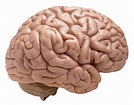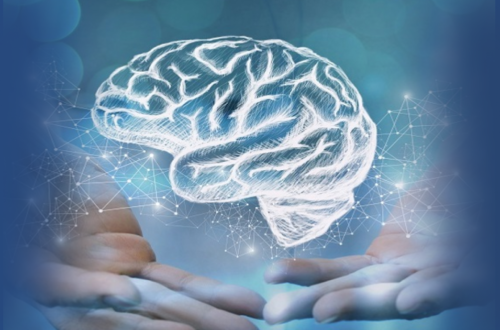7 Essential Vitamins and Supplements Your Brain Needs for Optimal Health
With over 5 million dementia cases in the U.S., brain health is a growing concern. A healthy brain not only reduces the risk of cognitive decline but also improves everyday functions like memory, reaction time, and decision-making.
There are so many benefits to keeping our brain healthy. A sharp and active mind can reduce your stress levels, help you recall information faster, and make you feel more engaged with life. That’s already a lot, but here are more benefits you enjoy when you have a fit brain:
• You think faster
• You are more apt to try new things
• Your memory improves
• You more easily find the right words when you need them
• You are able to practice better listening skills
• You become more efficient
• You are more observant
• You react quicker to stimuli
• You can maintain a good mood longer
• You become better at retaining information
• You become more self-confident
• You have quicker reflexes

Let’s explore the top 7 vitamins and supplements your brain needs to stay sharp and healthy.
1. Vitamin E: A Protector Against Cognitive Decline
Vitamin E is a powerful antioxidant that helps protect brain cells from oxidative stress, which is linked to conditions like Alzheimer’s. Studies show that a diet rich in Vitamin E can slow the progression of mild to moderate Alzheimer’s disease. To get enough Vitamin E, include foods like nuts, seeds, spinach, and broccoli in your diet. You can also consider taking a Vitamin E supplement, especially if your diet lacks these sources.
2. Vitamin B: The Brain’s Chemical Engineer
Vitamin B complex, which includes B1, B6, B9 (folate), and B12, plays a crucial role in brain health. These vitamins help produce neurotransmitters such as dopamine, serotonin, and GABA, which are essential for mood regulation, energy levels, and cognitive function. Low levels of B vitamins are associated with memory loss, depression, and a higher risk of brain disorders. Foods rich in B vitamins include whole grains, meat, eggs, dairy products, legumes, seeds, and nuts. If you have dietary restrictions, a B-complex supplement might be beneficial.
3. Vitamin B12: Sharpens Memory and Prevents Nerve Damage
Vitamin B12 is vital for maintaining the myelin sheath, a protective layer around your nerves. This vitamin is essential for cognitive health and preventing nerve damage. Deficiencies in B12 can lead to memory loss, confusion, and even dementia. Since B12 is primarily found in animal products, vegetarians and vegans may need to take a B12 supplement. Look for fortified cereals or plant-based milk options, or consider a daily supplement if you don’t consume animal products.
4. Folate (Vitamin B9): Enhances Cognitive Function
Folate, or Vitamin B9, is crucial for brain function and emotional health. It aids in DNA synthesis and repair, which is vital for cell division and growth, particularly in the brain. Folate deficiency can lead to cognitive decline and mood disorders. You can find folate in leafy greens, legumes, nuts, and fortified cereals. Folic acid supplements can be especially useful for individuals with absorption issues or increased needs, such as pregnant women.
5. Vitamin B6: Supports Serotonin Production
Vitamin B6 helps convert tryptophan into serotonin, a neurotransmitter that regulates mood and sleep. This vitamin also plays a role in producing melatonin, which helps regulate your sleep-wake cycle. Good sources of Vitamin B6 include fish, poultry, potatoes, and non-citrus fruits. For those who have trouble meeting their needs through diet alone, B6 supplements can be a helpful addition.
6. Magnesium: The Brain’s Bodyguard Against Toxins
Magnesium is a mineral that acts as a natural guardian of the brain by protecting it from neurotoxins. It’s also involved in over 300 biochemical reactions in the body, including those that regulate blood pressure and nerve function. Magnesium helps maintain normal nerve and muscle function, supports a healthy immune system, and keeps the heartbeat steady. Foods high in magnesium include nuts, seeds, whole grains, and leafy greens. Magnesium supplements can also help, especially for individuals with low dietary intake.
7. Vitamin C: The Antioxidant Warrior
Vitamin C is a powerful antioxidant that fights free radicals, reducing oxidative stress that can damage brain cells. It also helps regenerate other antioxidants in the body, like Vitamin E, further protecting the brain from damage. Additionally, Vitamin C is necessary for the production of neurotransmitters, which are vital for brain function. Citrus fruits, berries, kiwi, bell peppers, and spinach are excellent sources of Vitamin C. If you’re not getting enough from your diet, consider a Vitamin C supplement to boost your intake.
Conclusion
Maintaining a healthy brain is about more than just taking vitamins and supplements; it’s about a holistic approach that includes a balanced diet, regular exercise, mental stimulation, and social engagement. However, ensuring you get enough of these essential nutrients is a great step towards protecting your cognitive health. Remember to consult with a healthcare provider before starting any new supplement regimen to ensure it’s right for your needs.
Blessings,

Debbie



